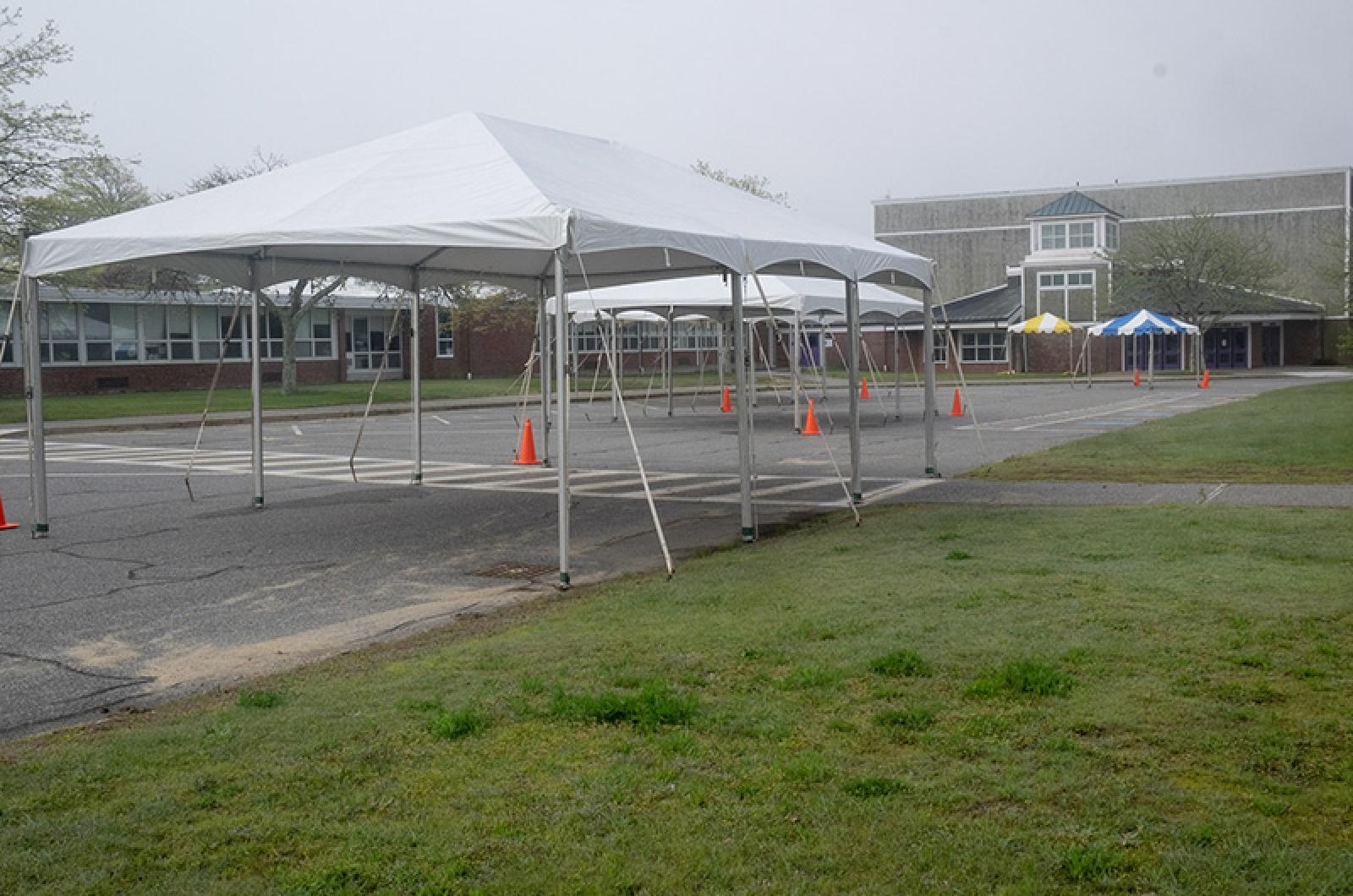The high school parking lot officially reopens Monday as a mobile testing lab, as wheels begin turning on an ambitious plan to screen all Islanders for Covid-19. The new testing site saw a soft opening on Thursday and Friday.
When the site opens formally Monday, emergency personnel and essential-service workers will be the first to undergo testing, followed by people at the highest risk.
But just as important as the testing itself is how effectively it is followed up, and that will require full and compassionate cooperation from the community.
Two-plus months into the coronavirus pandemic, the Island has dodged the worst of the crisis, with just 28 confirmed cases out of more than 800 people tested by the hospital, a reassuring rate of just three percent. Eight more people have tested positive for virus antibodies.
Island Health Care, which has teamed up with Quest Diagnostics and the Island boards of health on the new testing initiative, has been on front lines of contact tracing since the pandemic began, alerting people who have been exposed to virus-carriers and instructing them to quarantine for 14 days.
That effort will need to intensify assuming new testing turns up new cases, taxing the small band of health care workers who have undertaken that time-consuming task.
With the Island reopening, it is only a matter of time before someone in a public-facing job contracts the virus, and how the community responds to that inevitability can set the tone for how the Island continues to keep itself safe. Employers who learn that an employee has tested positive for coronavirus, for example, are under no legal obligation to disclose it, but could aid contact-tracers by voluntarily making that information public.
We credit the Steamship Authority for alerting the public when it has become aware of the possibility of infection, and we urge other businesses to do the same, even as we acknowledge the risks of doing so.
That’s where community support comes in, by rallying around rather than stigmatizing individuals and workplaces so the virus can be contained before it spreads.
Use of masks, frequent hand washing, social distancing and isolating when exposed to infection are all keys to keeping the Covid-19 at bay. But equally important is treating those who contract the virus as victims who need support, not pariahs to be scorned.




Comments
Comment policy »